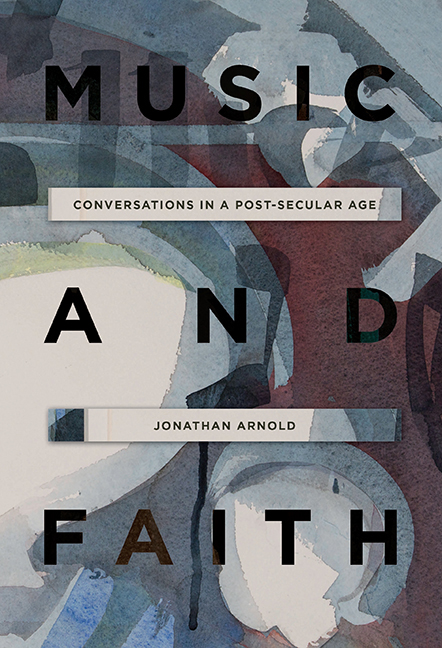Summary
The relationship with God, not God as an object to pin down, dissect and endlessly talk about, but as the subject to whom we relate most deeply and peacefully, is the most important relationship of all. God is not the object of our knowledge: God is the cause of wonder.
This World is not Conclusion.
A Species stands beyond –
Invisible, as Music –
But positive, as Sound –
It beckons, and it baffles –
Philosophy, don't know –
And through a Riddle, at the last –
Sagacity, must go –
To guess it, puzzles scholars –
To gain it, Men have borne
Contempt of Generations
And Crucifixion, shown –
Faith slips – and laughs, and rallies –
Blushes, if any see –
Plucks at a twig of Evidence –
And asks a Vane, the way –
Much Gesture, from the Pulpit –
Strong Hallelujahs roll –
Narcotics cannot still the Tooth
That nibbles at the soul –
This book has been dedicated to a re-examination of the relationship between music and faith, between modernity and postmodernity, between atheism and belief, between implicit and explicit theology. As such I have emphasised that a life of faith is more about journey than destination. The world is not conclusion, Emily Dickinson wrote, and maybe there should be no conclusion to these conversations, just more conversations. I cannot claim to have reached a definite destination but I can offer some assertions, findings and conjectures.
I have traced a line of continuity between the late medieval experience of religion, through the logocentricism of the Reformation and modern world, to a twenty-first-century Western culture of decline in biblical illiteracy and an incline in the search for non-religious spirituality. I have made a careful distinction between the process or action of faith, deeply embedded in praxis, with propositional, doctrinal belief – between the implicit theology of faith and the explicit theology of the creed. Artists in music and poetry are now discovering a new vocabulary to express spirituality, a language removed from Reformation logocentricism or Enlightenment rationalism. My conclusions have been that music is often a powerful expression of faith because it is not constrained by ideology, reason or cognitive assent. But I also conclude that music can, paradoxically, take us both beyond logocentric rationalism and deeper into an understanding of scripture, doctrine and tradition.
- Type
- Chapter
- Information
- Music and FaithConversations in a Post-Secular Age, pp. 219 - 232Publisher: Boydell & BrewerPrint publication year: 2019

